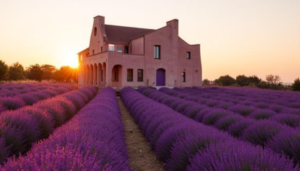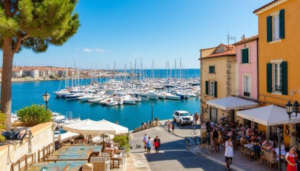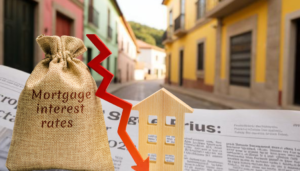Explore the rise of hybrid projects in France’s real estate market, blending hotels and homes to meet evolving urban demands.
In the ever-evolving landscape of urban living, real estate developers and hospitality professionals are increasingly pivoting towards hybrid projects that seamlessly integrate medium-term rental accommodations. This innovative approach is a response to the shifting paradigms of lifestyle and housing needs in contemporary society.
Upon entering these hybrid spaces, one is greeted not by the mundane sight of mailboxes, but rather by a 24-hour reception desk—a bustling nexus where tourists and long-term residents converge. These half-hotel, half-residential projects are sprouting up in the heart of French cities, with Lyon’s Bikube project, spearheaded by Vinci Immobilier, recently unveiling its doors mere steps from the bustling Part-Dieu train station. After five years of meticulous planning, this venture has come to fruition, offering 146 apartments that range from cozy studios to spacious three-room units. Notably, 55 of these apartments are earmarked for long-term stays, spanning durations from one to eight months, and they are reportedly fully booked—a testament to the burgeoning demand for such accommodations.
Pricing for these hybrid offerings is as adaptable as the clientele they attract, with rates commencing at €120 per night and €940 per month, all while providing amenities that rival those of a four-star hotel. This model addresses a critical gap in the market, particularly in light of the ongoing housing shortages in urban centers, the escalating demand for flexible living arrangements, and the pressing need to foster community connections amidst increasing social isolation.
The Bikube project, akin to its contemporaries, is designed to “animate the place,” offering communal spaces that encourage interaction and collaboration. Residents can enjoy shared facilities, including a well-appointed kitchen and a stylish living room, all complemented by a bar-restaurant that welcomes both residents and passersby alike. The philosophy behind this design is clear: to create an environment that not only serves the needs of its inhabitants but also enriches the surrounding community.
The clientele for these innovative spaces is diverse, comprising many foreign interns and researchers who appreciate the streamlined process of securing accommodation without the bureaucratic hurdles typically associated with traditional housing. Additionally, professionals on temporary assignments find these hybrid projects particularly appealing.
Vinci Immobilier has ambitious plans to expand the Bikube concept, with another location slated to open this summer in Montpellier, followed by a project in Suresnes, a suburb of Paris, in 2026. Competing developer Bouygues Immobilier is also entering the fray with its Nomo brand, which will debut 141 apartments in Bordeaux in early 2025, with a subsequent project planned for Saint-Ouen in the Paris suburbs in 2026.
The hospitality sector is not to be outdone; Singaporean conglomerate Ascott, known for its Citadines aparthotels, is launching a similar initiative called Lyf. Following successful openings in Vienna and Frankfurt, the next Lyf establishment is set to grace Paris in April 2025, with additional projects underway in the United Kingdom. Ascott aims to expand its portfolio from a modest ten properties to an ambitious 150 worldwide by 2030, simultaneously revitalizing its Citadines residences through a comprehensive renovation program that enhances communal areas and accommodates varying lengths of stay to cater to a diverse clientele.
The emergence of hybrid projects in the French real estate market reflects a nuanced understanding of contemporary living dynamics, marrying the comforts of home with the conveniences of hospitality. As these innovative spaces continue to proliferate, they promise to redefine urban living, fostering community engagement while addressing the pressing challenges of housing accessibility and social connectivity.









